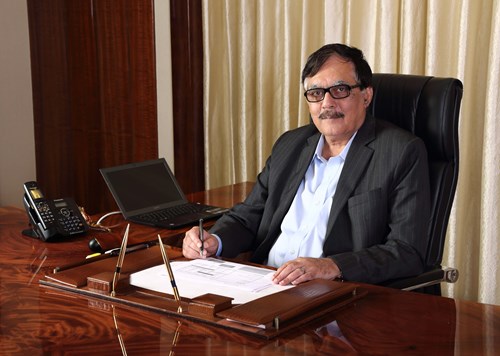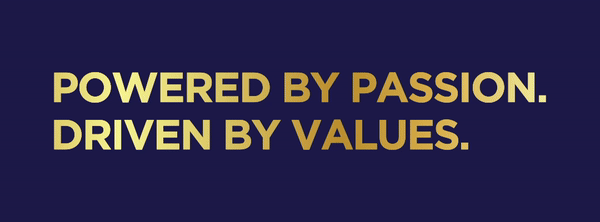Message from the Executive Chairman
The Indian Register of Shipping (IRClass) has seen strong growth in its reputation as a quality classification society amongst leading global flag administrations which is reflected in its significant increase in tonnage in recent years. The profile of the organisation has also grown internationally.

IRClass provides a comprehensive range of services which cover maritime safety and regulation using high quality technical support and compliance verification, supported by a well-funded in-house research & innovation centre. It uses its skills and capabilities across a wide range of sectors including Marine, Offshore, Defence, Marine Technical Services, Industrial Inspection, Management Systems Certification and Maritime Education & Training.
As we all know, the coronavirus pandemic has led to unprecedented changes in the way we all live and work. IRClass, along with the rest of the industry, has taken a practical and pragmatic approach using digital technology to perform remote surveys to keep ships’ certificates valid, if travel restrictions prevented inspectors being physically present onboard.
This has proved to be very successful, winning the approval of flag states and regulators. IRClass may continue this practice, with some refinements, even after coronavirus restrictions are eased. We are also working to make sure that our surveyors, at all levels, are kept abreast of changing technology to enhance their surveying skills in this increasingly digitalised world.
In addition to the increased use of new technology, Classification Societies as a whole need to engage more deeply and frequently with industry partners through a structured programme of detailed technical and high-level policy meetings engaging with shipbuilders, owners and marine insurers.
This was an initiative which I carried forward during my year-long tenure as Chairman of the International Association of Classification Societies (IACS) with an attempt to make it more intense; which I’m sure will continue to ensure that industry concerns and aspirations are properly reflected in the IACS work programme to develop into a mutually beneficial feedback mechanism so that progress can be shared and, where possible, common consistent positions taken.
During the IACS Chairmanship I had the opportunity to work closely with IACS members on a range of topics. Significant advances were made by IACS including the establishment of a data-driven policy, strengthening IACS internal Quality systems to maintain and enhance quality operations and further progress with IQARB, a consolidated IACS Recommendation on Cyber Resilience and the establishment of an Expert Group on MASS.
COVID-19 came as a black swan event which truly tested the strength of IACS, and I was happy to see that IACS responded to it exceedingly well. Global trade moved on without interruptions and it was ensured that ships continued to run safely with no additional impact on the environment. The IACS COVID Taskforce did a commendable job with a very qualitative output in a very short timeframe, enabling IMO to issue the requisite Circular, along with the Guidance Note, drafted by the COVID Taskforce. This was much appreciated by the IMO.
I have no doubt that IACS is a robust organization with very high-quality membership and a potential to deliver much more in times to come.
The role of class is changing, and we are increasingly being seen as facilitators in helping the industry comply with the new regulatory requirements by offering technical expertise beyond the traditional role of class as it evolves into more of a solution provider role.
IRClass’ newbuilding activities are also growing at a steady pace worldwide and we are also engaged in key conversion projects in the offshore sector.
With the IMO ambition of a minimum 50% reduction in GHG emissions by 2050, shifting to non-fossil fuels will possibly be the bigger challenge likely to be faced by the industry. This will involve not only new designs for future ships, but also a complete change in the marine fuel ecosystem and significant investments for the use of low emission fuels. Existing fleet of ships will need to be relooked at and owners need to consider investment into greener ships early on.
New regulations and technologies are changing the way we work. However, with all these changes, it is important that the human element is given special attention too. With the growth of technology and digitalisation, the seafarer role onboard is increasingly specialized.
Consequently, there is a learning gap that needs to be addressed. The importance of maintaining maritime skills and ensuring that the seafarer training and qualification framework keeps pace with the technological advancement needs greater emphasis especially in the era of SMART Shipping.
We continue to regularly invest into Research & Innovation through which we develop our new services to address industry challenges and actively work with companies developing non-fossil fuel propulsion.
So, as the world economy emerges from the global pandemic, IRClass is ready as your classification partner to help with advice and guidance to meet the challenges and market requirements of the future.
Arun Sharma
Executive Chairman

Policy Statement and Corporate Objectives
To promote Quality, Occupational Health and Safety and protection of the Environment by making every effort to be a Safer, Smarter and Green Organization.
Download

Code of Ethics
Indian Register of Shipping (IRClass), lives by its reputation. Acceptance of its tectinuously proving and re-proving inthnical work can only be maintained by conegrity and competence.
Read More







